NI election: Sinn Féin says talks to be held on Tuesday
- Published
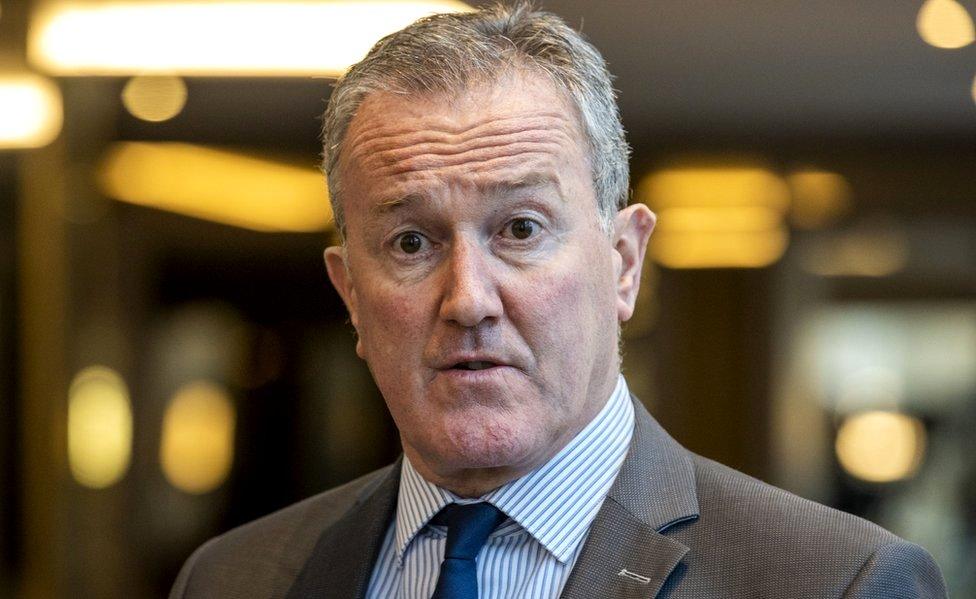
Conor Murphy wants to know what Chris Heaton-Harris is planning to do about an election
Sinn Féin's Conor Murphy has said his party will meet the Northern Ireland secretary on Tuesday to discuss when a Stormont election will happen.
Chris Heaton-Harris has said he will call a poll but has not set a date.
He said he would hold another round of talks with the Stormont parties in the coming week before giving more details about a potential election.
But Phillip Brett of the Democratic Unionist Party (DUP) said more discussions would be "pointless".
Devolved government in Northern Ireland has not functioned since February.
The DUP has blocked the restoration of power-sharing in its protest against the post-Brexit trading arrangement known as the Northern Ireland Protocol.
The political parties had expected the Northern Ireland secretary to announce on Friday when an election would take place.
But Mr Heaton-Harris declined to set a date.
Speaking to BBC News NI on Saturday, Mr Murphy described the lack of an announcement as "bizarre and unexpected".
"We were as surprised by his U-turn as everyone else," said the former finance minister.
Chris Heaton-Harris denies he made a U-turn about calling an election
"We're not certain what's behind it... we have had no discussion with him at all and no advance warning of what he's going to do.
"I think that's the wrong way to do business."
Mr Murphy said Sinn Féin planned to meet Mr Heaton-Harris on Tuesday to understand what the Northern Ireland Office is "actually doing".
"What we want to know from the secretary of state is when [an election] is going to take place," he said.
'Focus on protocol'
Mr Brett of the DUP said he said he wanted the UK government to resolve his party's concerns about the Northern Ireland Protocol.
It keeps Northern Ireland aligned with some EU trade rules to ensure that goods can move freely across the Irish land border.
Unionist parties argue that the protocol has undermined Northern Ireland's place within the UK by effectively creating a trade border with England, Scotland and Wales.
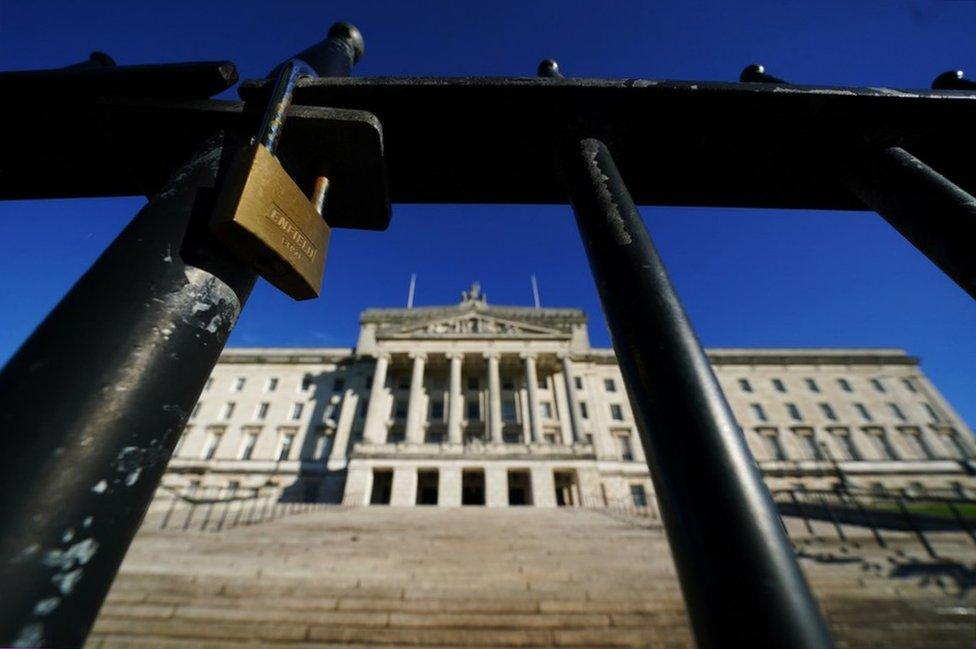
Devolved government at Stormont has not functioned properly since February
"We've been talking for two-and-a-half years - now is the time for action," said Mr Brett.
"We will not re-enter the executive until action is taken to replace the protocol with arrangements that have cross-community support.
"That is where the focus needs to be, not on pointless talks."

Read more: Stormont crisis explained

The political parties had until Friday to form a functioning executive at Stormont but the DUP blocked that from happening.
Legislation states that an election must therefore be held within 12 weeks.
It had been expected that one would take place on 15 December.
Mr Heaton-Harris denied that he had made a U-turn, saying that a vote did not have to be called immediately.
'Space to think'
Alliance Party MLA Kate Nicholl said she was relieved that a date for the poll had not been announced.
"We really hope that there won't be [an election] and that we can use this time to be constructive," she said.
"People need us to do our jobs and to work together - it's what we were elected to do."
Social Democratic and Labour Party (SDLP) MP Clare Hanna said an election was now "less likely".

Kate Nicholl says the political parties should be constructive in the coming days
She said the Mr Heaton-Harris's decision not to declare a polling date on Friday had "created space to think about what the actual impact of an election would be".
"I think by common consensus it wouldn't be helpful," she said.
The previous assembly election in May resulted in Sinn Féin winning the most seats for the first time.
That meant the party's vice-president Michelle O'Neill was entitled to the role of first minister.
The DUP was the second-biggest party but it refused to nominate a deputy first minister, meaning a ruling executive for Northern Ireland could not be formed.
In the run-up to that election the DUP withdrew Paul Givan from the first minister post in protest over the Northern Ireland Protocol.
- Published28 October 2022
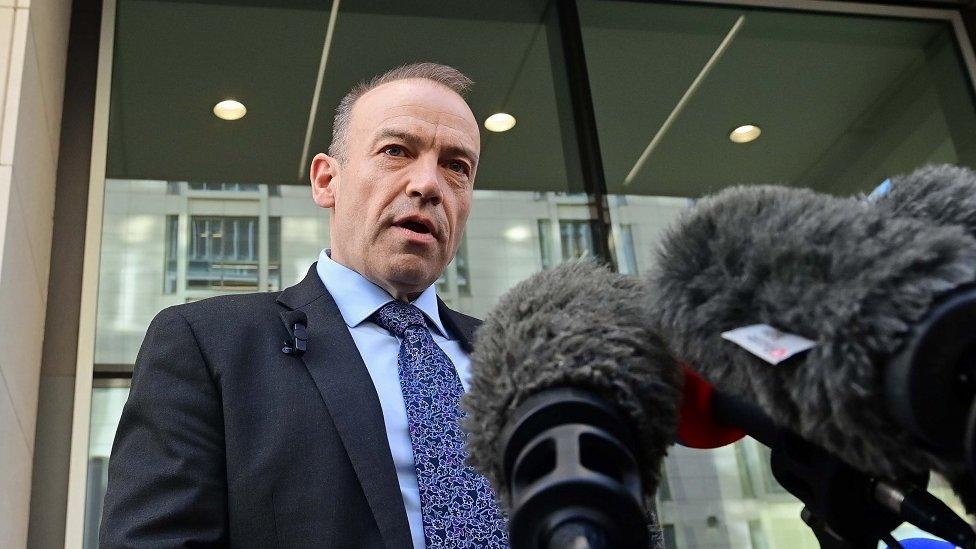
- Published27 October 2022
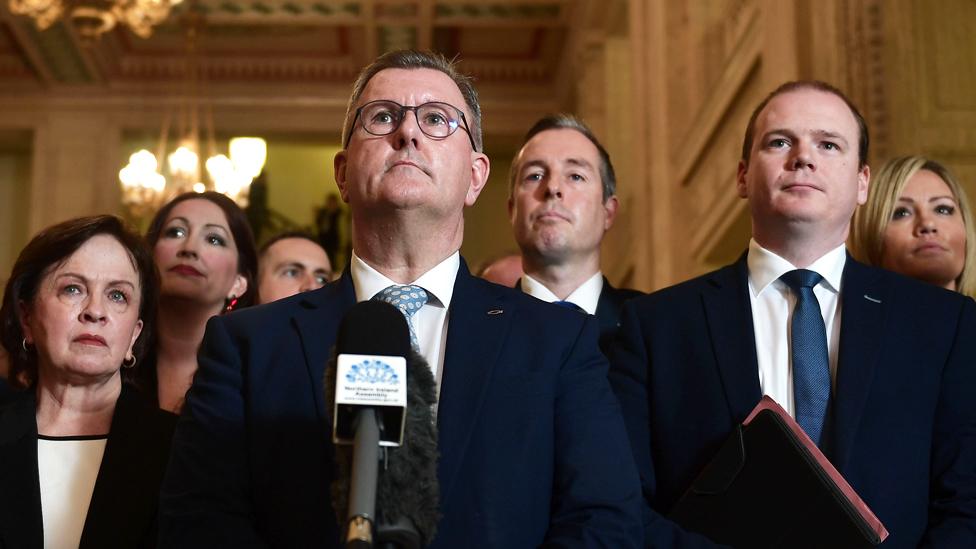
- Published26 October 2022
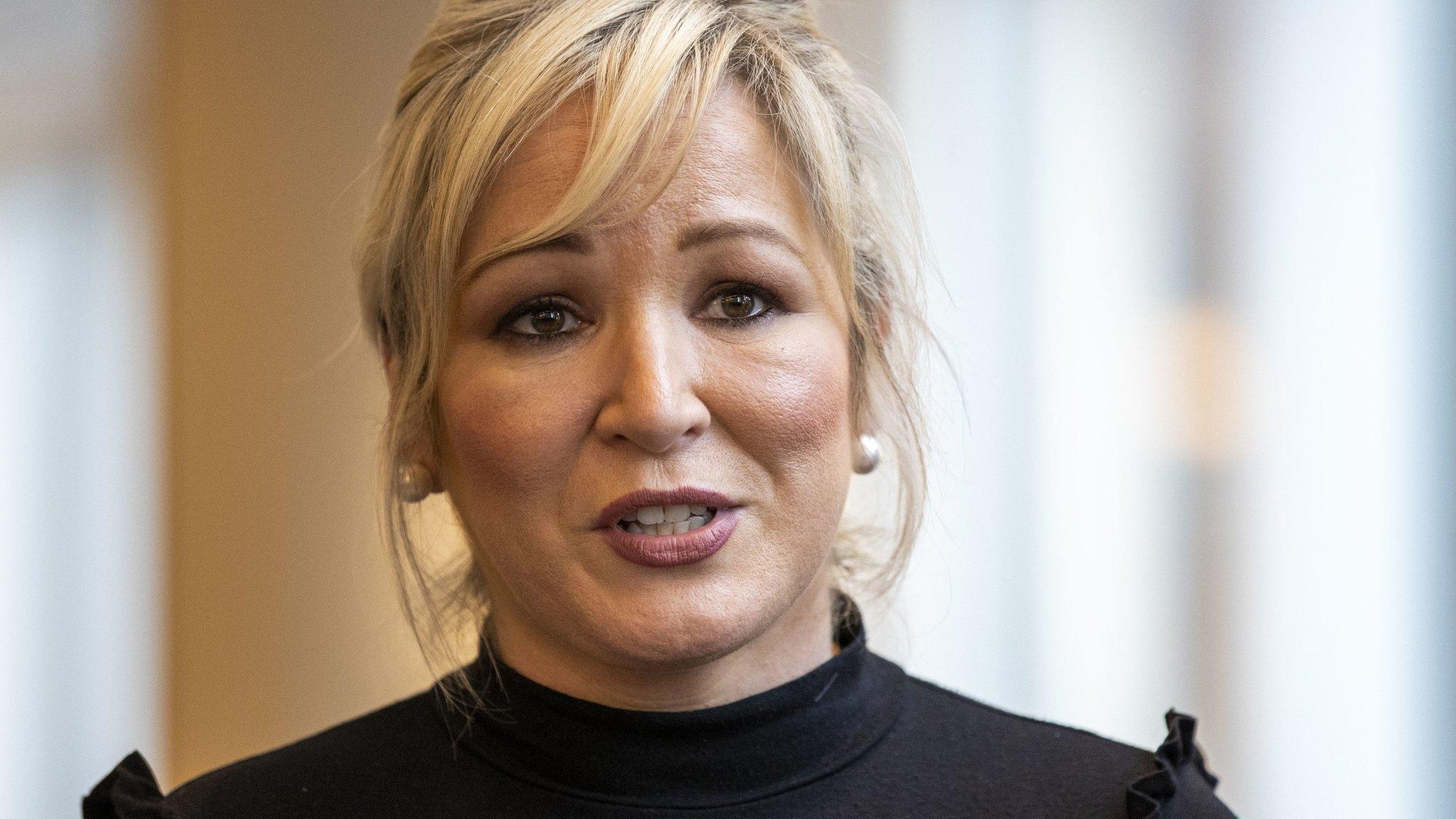
- Published2 February 2024
